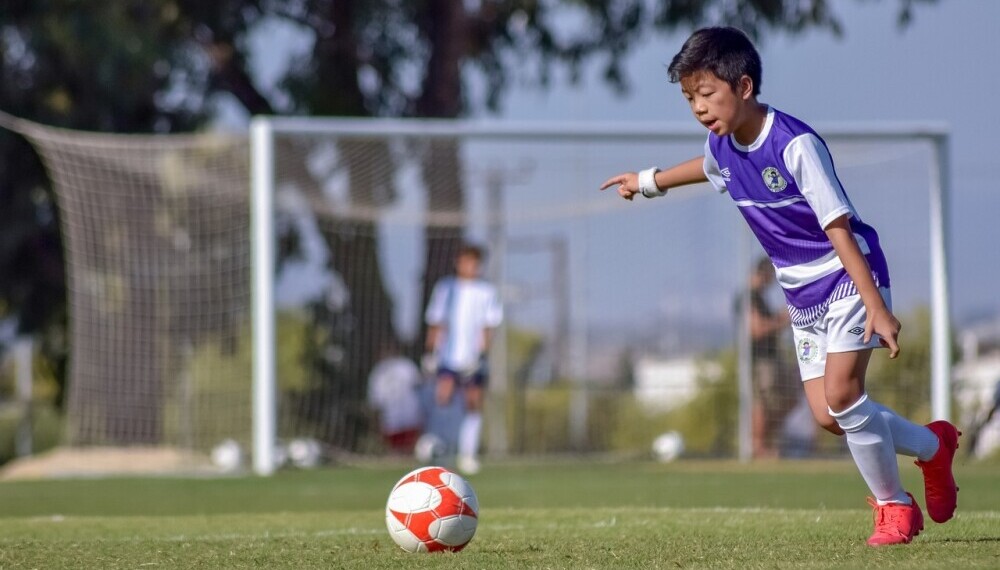Navigating the world of soccer scouting can be both exciting and overwhelming for young players.
The pressure to impress scouts and land a coveted spot in professional or college soccer can sometimes cloud judgment and lead to avoidable mistakes.
It’s crucial to recognize these pitfalls and take proactive steps to avoid them. In doing so, young soccer players can significantly increase their chances of being noticed by scouts and securing a successful future in the sport.
This guide explores the most common mistakes players make with scouts and provides actionable solutions to help avoid them.
Common Mistakes and How to Avoid Them
a . Ignoring the Basics
Many young soccer players become so focused on flashy moves and social media presence that they forget the fundamentals of the game.
However, scouts place significant emphasis on a player’s technical ability and overall understanding of the game.
Neglecting basic skills such as passing, dribbling, and shooting can set players back significantly in their development.
Solution:
- Prioritize Fundamentals: Dedicate time every day to practicing core soccer skills. Work on passing accuracy, ball control, and shooting technique. No matter how skilled you become, basic skills should always be the foundation of your game.
- Maintain Physical Fitness: Soccer is a physically demanding sport. Improve your endurance, strength, and flexibility by engaging in regular conditioning routines and strength training to ensure you are fit for the demands of the game.
- Develop a Strong Mental Game: Soccer is as much a mental game as it is physical. Strong decision-making, focus, and composure under pressure are essential traits for scouts to see. Practice mental techniques like visualization, mindfulness, and positive self-talk to enhance mental toughness.
b . Overreliance on Social Media
In the age of digital presence, many young players make the mistake of over-promoting themselves on social media platforms.
While showcasing your skills online can be an excellent way to gain attention, too much focus on online branding can lead to neglecting your actual performance on the field.
Solution:
- Balance Online and On-Field Presence: Use social media strategically to showcase your skills, but always ensure that your on-field performance is the priority. Your ability to perform under pressure is what ultimately matters most to scouts.
- Quality Over Quantity: When posting online, prioritize quality over quantity. Rather than posting frequently, focus on sharing videos that demonstrate your best skills, such as goals, assists, or defensive actions. Provide a glimpse into your personality and character through engaging content that adds value to your followers.
c . Poor Communication with Scouts
The way you communicate with scouts can make or break your chances of getting noticed.
Many young players either fail to communicate professionally or don’t take the initiative to follow up on previous conversations, which can lead to missed opportunities.
Solution:
- Practice Effective Communication: Develop strong communication skills, both written and verbal. When reaching out to scouts or coaches, maintain a professional tone, be clear about your intentions, and ensure your message is concise.
- Be Proactive: Don’t wait for scouts to reach out to you. Take the initiative by sending them a well-crafted introduction email with your soccer resume, highlight video, and details of your availability. Follow up respectfully after your initial contact to express continued interest.
- Show Gratitude: Whenever a scout provides feedback or shows interest in your progress, express your gratitude. A simple thank you note or message can leave a lasting positive impression.
d . Neglecting Academic Performance
Soccer scouts are not only looking for athletic prowess but also for players who understand the importance of maintaining a well-rounded life.
A poor academic record can limit scholarship opportunities and even affect eligibility for professional clubs.
Solution:
- Prioritize Education: Focus on maintaining strong academic performance. Many scholarships and opportunities with professional teams require you to meet certain academic standards. Balance your academic work with soccer training to excel in both areas.
- Seek Academic Support: If you find any subjects challenging, don’t hesitate to ask for help from teachers, tutors, or mentors. Developing a strong study routine can help prevent academic struggles from affecting your soccer goals.
e . Ignoring Agent Advice
The role of a soccer agent is crucial when navigating the professional world. However, some young players may either rush into signing with an agent or ignore their advice, which can lead to poor decision-making.
Solution:
- Do Thorough Research: Before signing with an agent, ensure they have a strong reputation and experience working with players at your level. It’s important to trust an agent who understands your goals and has the necessary expertise to represent you.
- Trust Your Agent: If you choose an agent, listen to their professional advice. They have the knowledge and connections to guide your career, so avoid dismissing their recommendations out of impatience or a desire for immediate success.
f . Lack of Patience and Perseverance
Soccer is a long-term journey, and many young players make the mistake of rushing the process.
Rushing can lead to poor decisions, such as signing with the wrong team or seeking opportunities that may not be the best fit.
Solution:
- Stay Patient and Persistent: Understand that success in soccer takes time, and your development will be a continuous process. Trust the journey and focus on making incremental improvements in your game.
- Embrace Challenges: The road to success is filled with setbacks and obstacles. Rather than becoming discouraged, view challenges as opportunities to learn and improve. Persistence and resilience will set you apart from others.
g . Forgetting the Bigger Picture
Many young soccer players are so focused on their careers that they forget to nurture other important aspects of their lives. While soccer is important, having a well-rounded life and maintaining personal relationships is equally crucial for long-term success.
Solution:
- Develop Well-Rounded Interests: Pursue activities outside of soccer that help develop other aspects of your personality. Whether it’s reading, learning a new skill, or volunteering, these activities help you grow as a person and reduce burnout.
- Build Strong Relationships: Soccer can be a demanding sport, so it’s essential to stay connected with family, friends, and mentors who provide emotional support and help keep you grounded.
Final Thoughts
Avoiding these common mistakes can make a significant difference in a young player’s path to success.
Remember, soccer is about continuous improvement, both on and off the field.
Building solid technical skills, communicating effectively, maintaining academic performance, and nurturing a healthy mindset are essential components of a successful soccer career.
While scouts look for players with exceptional skill and potential, they also value a player’s character, professionalism, and ability to handle adversity.
Focus on developing a balanced approach to your soccer career, and you’ll increase your chances of not only being noticed by scouts but also of building a long, successful future in the game.
I would love to hear your thoughts, experience and or questions. Please drop a message in the comment section below and I will be more than happy to come back to you.
Happy soccer season!!!!




One Response
This post provides invaluable advice for young soccer players navigating the often-intense scouting process. The emphasis on avoiding common mistakes—such as neglecting fundamentals, over-prioritizing social media, and poor communication—is especially relevant in today’s competitive environment. It’s a great reminder that while modern tools like online promotion can be helpful, they should never overshadow the importance of on-field performance and core skills.
The post wisely highlights the significance of a holistic approach, combining technical skills, mental toughness, and physical fitness. I particularly appreciate the section on balancing soccer with academics and personal development. It’s refreshing to see a focus on nurturing well-rounded individuals, not just players.
Another key takeaway is patience and perseverance. Many young athletes may rush the process, but this guide effectively encourages them to trust their journey, embrace challenges, and build strong relationships for long-term success.
Overall, this is a thoughtful, well-rounded guide that can empower young players to make informed decisions. The actionable solutions are clear and practical, making it an excellent resource for anyone aspiring to excel in soccer.